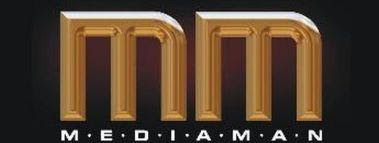KEVIN RUDD has made good on his promise to ignore Labor's factions by unveiling a ministry of his own choosing, with six new faces and a record seven women.
And the Prime Minister-elect put his whole team on notice he would be a hard taskmaster, saying there would be two cabinet meetings next month, and their only summer holiday would be Christmas Day and Boxing Day.
Mr Rudd and his wife, Therese Rein, went to the Lodge yesterday afternoon to meet the vanquished John Howard and his wife Janette for a tour of what will soon be their home.
Mr Howard will drive to Government House today to formally tender his resignation as prime minister.
The new Labor front bench, to be sworn in on Monday morning, includes 20 cabinet ministers, 10 junior ministers and 12 parliamentary secretaries.
The star Labor recruits Maxine McKew, Greg Combet, Gary Gray, Mike Kelly and Bill Shorten were all made parliamentary secretaries, an indication Mr Rudd views them as future ministerial material.
"Everyone, including yours truly, is on notice in terms of performance," he said.
After receiving a hero's welcome, Mr Rudd told the caucus "we have an enormous burden of responsibility lying ahead of us".
He urged MPs to look at the pictures on the wall of past Labor leaders and think of the challenges they had faced, including war and the Depression, when contemplating their own tasks. "We have struggled in the fields, we have fought the good fight, and we have prevailed," he said.
Among the big changes yesterday was the massive workload given to the deputy leader, Julia Gillard, of workplace relations and education, two of Labor's busiest policy areas.
"It's a big job but for a very talented individual, and if I did not have that confidence then I wouldn't have done it," Mr Rudd said.
Stephen Smith was promoted from education to foreign affairs while Robert McClelland, the former foreign affairs spokesman, was appointed attorney-general.
Wayne Swan and Lindsay Tanner were confirmed as treasurer and finance minister respectively while Peter Garrett kept the environment portfolio, but was partially sidelined by being confined to a domestic role.
The South Australian senator Penny Wong was given the new cabinet position of climate change and water. She will be Australia's chief negotiator on ratification of the Kyoto Protocol and in discussions for a global greenhouse gas reduction target to succeed the Kyoto agreement.
Senator Wong will also be responsible for implementing Labor's state goal of a 20 per cent mandatory renewable energy target by 2020.
Senator Wong, Mr Garrett and Mr Swan will all accompany Mr Rudd to the United Nations climate change summit in Bali in two weeks.
Simon Crean and John Faulkner are the only appointments with previous federal ministerial experience. Mr Rudd said the factional allegiances of his front bench "were not even faintly relevant" to his decision making.
"I spent a lot of time myself working on this in the last few days and I bounced a few ideas off various people, including Julia as my deputy, and including some of the wise old owls in the establishment," he said.
The factions were left to squabble over the minor positions. Harry Jenkins will become speaker of the House of Representatives and John Hogg the Senate president.
Kerry O'Brien, one of the six dumped from the front bench, will become Senate whip, and Roger Price will be House whip.
The six dumped from the former front bench were senators O'Brien, Kate Lundy and Jan McLucas and MPs Bob McMullan, Laurie Ferguson and Arch Bevis.
They were replaced by Senator Faulkner, Kate Ellis, Brendan O'Connor, Warren Snowdon, Justine Elliot and the former NSW state minister Bob Debus. Mr Debus is the only new MP to be elevated to the ministry. He was given the junior ministerial portfolio of home affairs.
Mr Rudd has shelved plans for a department of homeland security. He announced a review next year in which the various federal agencies to be affected by such a proposal could make submissions.
"I do not want, with a new government being sworn in, for our security agencies to be confronted with a new ministry of arrangement," he said.
Websites
The Sydney Morning Herald - Federal ElectionMedia Man Australia Profiles
Politics
